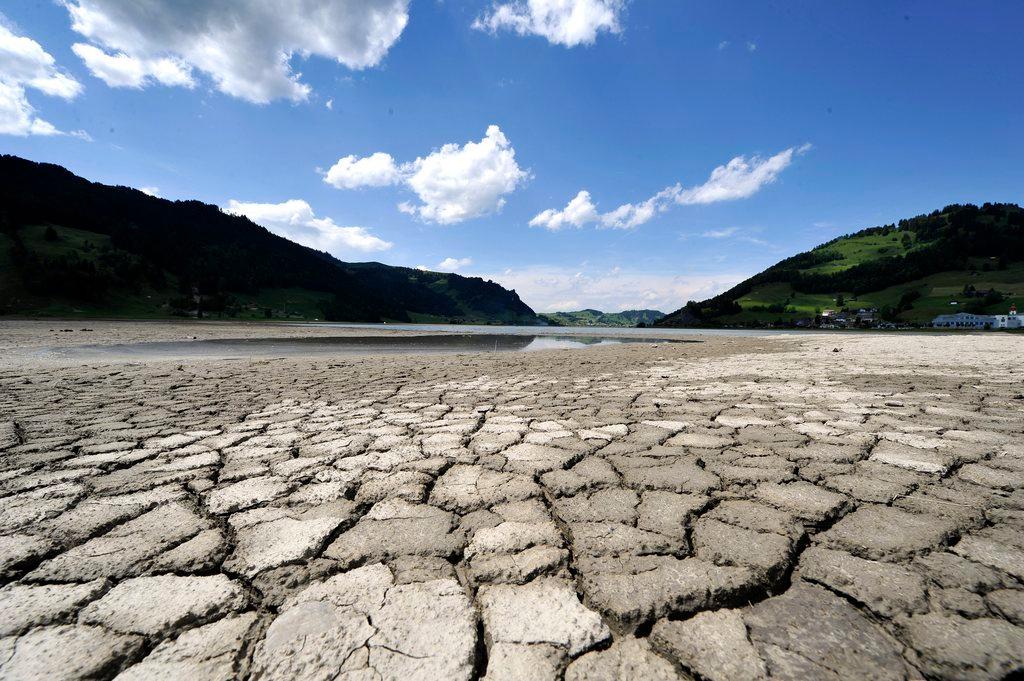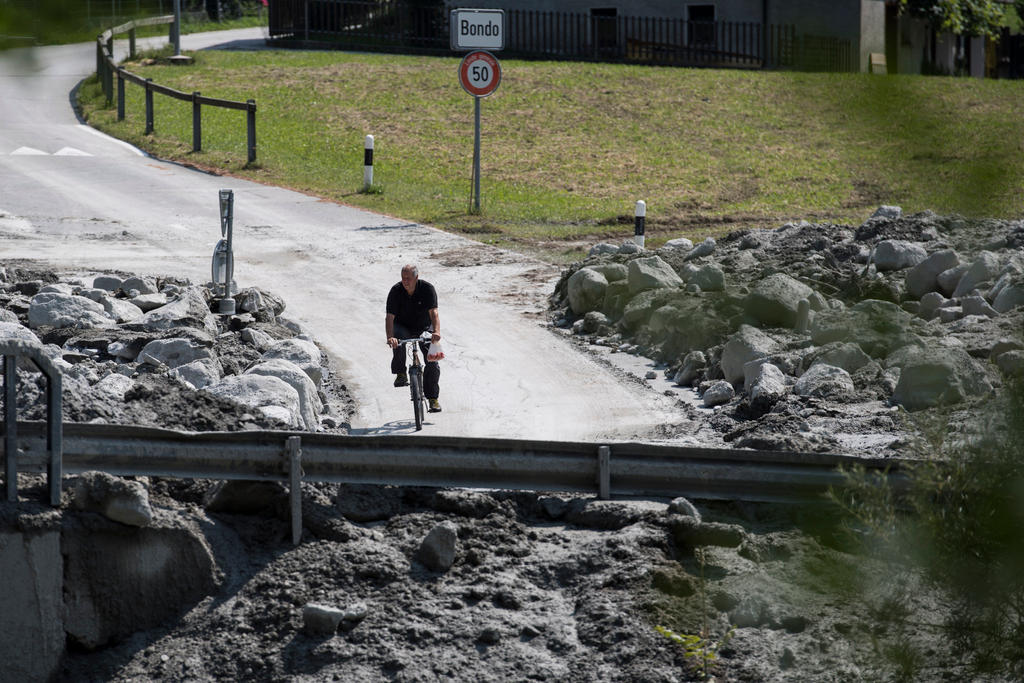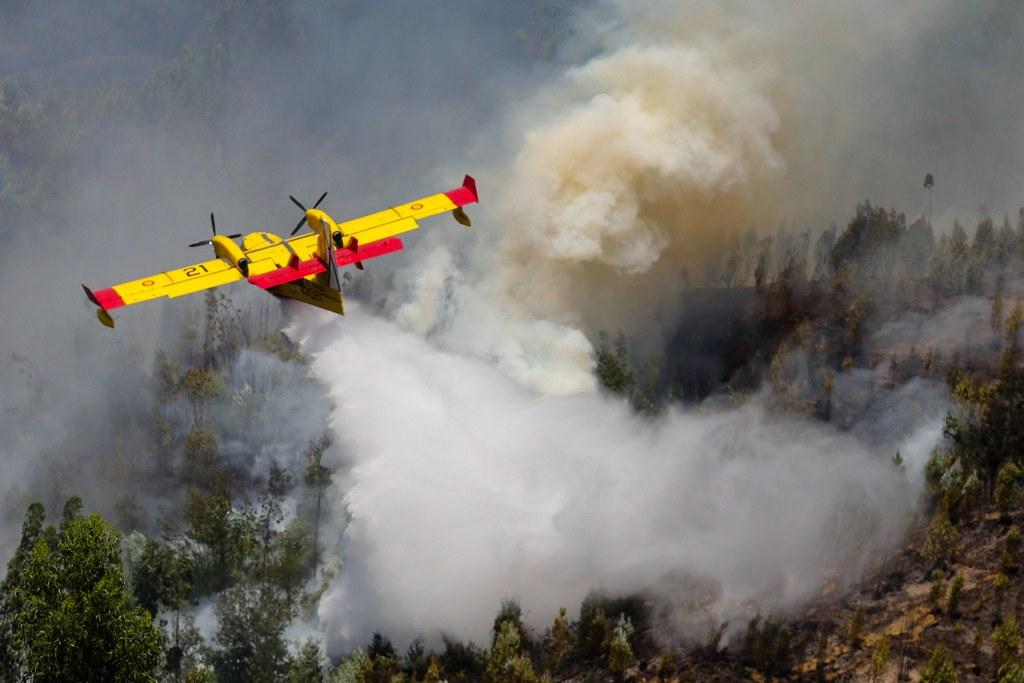Insurers act on climate change exposure

Insurance companies, like Zurich-based Swiss Re, are dealing with climate change impacts in the form of direct claims related to volatile weather conditions, writes The Financial Times' Oliver Ralph.
First it was fierce storms in northern Europe. Since then there have been wildfires in California, a drought in Australia and more storms, this time in the US and Asia.
Extreme weather of one sort or another has been a regular feature of 2018. It was the same last year, when hurricanes Harvey, Irma and Maria as well as wildfires in California inflicted devastation on millions of people.
Insurance companies are on the front line as they are exposed to extreme weather and the impact of climate change in a variety of ways, most obviously via direct claims related to volatile weather conditions.
Half of damage not covered by insurance
Whether it is paying to replace roofs torn off by high winds, repairing flood damage, or compensating farmers for the impact of drought, insurers have to pay out when the weather is unexpectedly bad.
“We have been looking into climate change for 30 years,” says Edi Schmid, chief underwriting officer at insurer Swiss Re. “Clearly, there are effects — temperatures are rising, and there are more frequent heatwaves and droughts.”
According to research from Swiss Re, there were $144 billion (CHF143 billion) of insured losses from natural catastrophes and man-made disasters last year, making it the most expensive year so far, although Schmid points out that not all of the costs can be directly connected to climate change.
Claims in future years could well be higher if insurance cover spreads. Total economic losses globally from last year’s disasters were $337 billion, meaning that more than half of the damage was not covered by insurance.
Protection measures
The industry is also exposed to climate change in less direct ways. In the US, numerous cities and one state — Rhode Island — are suing the oil industry over the impact of fossil fuel emissions.
Local authorities point to rising costs because of climate change: these include improvements to sea defences, raising roads near coastlines or employing more firefighters to tackle wildfires. The oil industry should shoulder some of the cost, they say.
The litigation is likely to run for some years, and it is not yet clear whether it will be decided in state or federal courts. But if the 38 oil companies being sued lose, they are very likely to claim some or all of their costs back on their insurance policies.
Neil Beresford, partner at law firm Clyde & Co, says: “Because these cases are presented on the basis that petroleum is a defective product, then there is an argument that this is a general liability matter, for which oil companies have insurance.”
He adds: “The insurance industry’s exposure could go up to tens or even hundreds of billions of dollars.”
With that sort of money at stake, it is hardly surprising that the insurance industry is taking action to protect itself from the impact of climate change.
Adriano Lanzilotto, a vice-president at property insurance company FM Global, says: “We want to make sure people do what they can to protect themselves. Hurricanes are becoming stronger and more frequent. As long as clients protect themselves, we can continue to provide cover…we are not afraid of more frequent events.”
That protection can include basic measures such as flood barriers or using building materials that are easier to replace if damaged. For commercial clients, however, it can also involve more complex work, such as taking steps to ensure that supply chains will not be interrupted in the event of severe weather.
Responsible investments
Some insurers have gone further, taking action against the companies they deem responsible for climate change in the first place.
The most obvious step is to divest. Insurance companies have large investment portfolios, and ethical, social and governance (ESG) investing — which takes account of ethical criteria when making decisions — is becoming an increasingly prominent theme.
Last year, Swiss Re took the unusual step of moving its entire investment portfolio to take account of ESG benchmarks, leading to a reduction of investment in the kinds of companies that cause climate change.
“Long-term investors such as insurance companies are best equipped to lead the way on responsible investments,” says Guido Fürer, chief investment officer at Swiss Re. “Insurance companies have $30 trillion of assets to invest.”
Insurance companies are also increasing their investments into green energy schemes such as wind parks, solar farms and hydro projects. Allianz had €5.6 billion (CHF6.4 billion) invested in renewable energy at the end of 2017, while late last year Axa increased its target for green investments from €3 billion to €12 billion by 2020.
Increasingly, insurance companies are taking a similar stance when it comes to deciding which clients to insure. A growing number have pulled back from insuring thermal coal companies, for example.
If they are not investing in these companies, they argue, they should not be insuring them.
Germany’s Allianz said in May that it would pull its coverage from single coal-fired power plants and coal mines, and that it would phase all coal risks out of its business by 2040.
At the time Oliver Bäte, the group’s chief executive, said it wanted to “cut the biggest climate killer out of the core business over time”.
The insurers have been encouraged, subtly or otherwise, by a concerted campaign from pressure groups such as Unfriend Coal, which see insurance companies as a good way to apply indirect pressure on the fossil fuel industry.
So far, the insurers that have decided to stop covering coal — including Munich Re, Swiss Re, Zurich, Scor and Axa as well as Allianz — have all come from Europe. The pressure groups are now targeting US-based insurers.
Carlos Wong-Fupuy, a senior director at the rating agency AM Best, says: “In Europe, industry bodies and regulators have been more active [on climate change] and that has created visibility. In the US it is not less important, but companies have been less active in terms of disclosing and being explicit about their strategies.”
Copyright The Financial Times Limited 2018External link

More
Next decade ‘will be decisive’ for climate crisis

In compliance with the JTI standards
More: SWI swissinfo.ch certified by the Journalism Trust Initiative













You can find an overview of ongoing debates with our journalists here . Please join us!
If you want to start a conversation about a topic raised in this article or want to report factual errors, email us at english@swissinfo.ch.